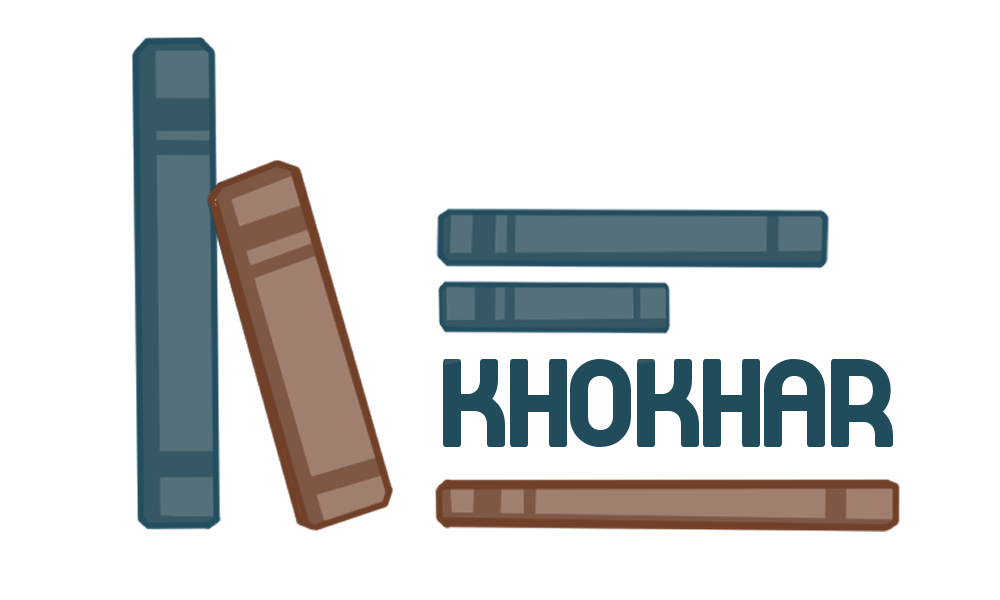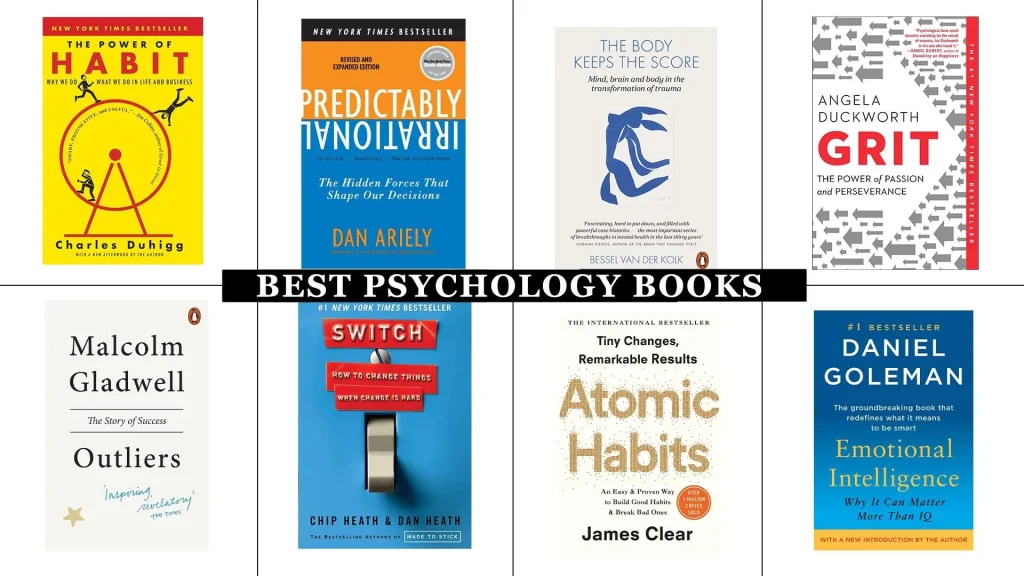In the vast landscape of human behavior, few genres captivate the mind like interesting psychology books to read before you die. These tomes unravel the mysteries of our emotions, relationships, and inner workings, offering insights that resonate across lifetimes. From the alchemy of love to the science of persuasion, the following curated list of psychology books to read promises to enlighten, challenge, and inspire. Dive into these pages to discover the best of human nature through the lens of brilliant minds.
Best Psychology Books About Emotions
The School of Life: An Emotional Education by Alain de Botton
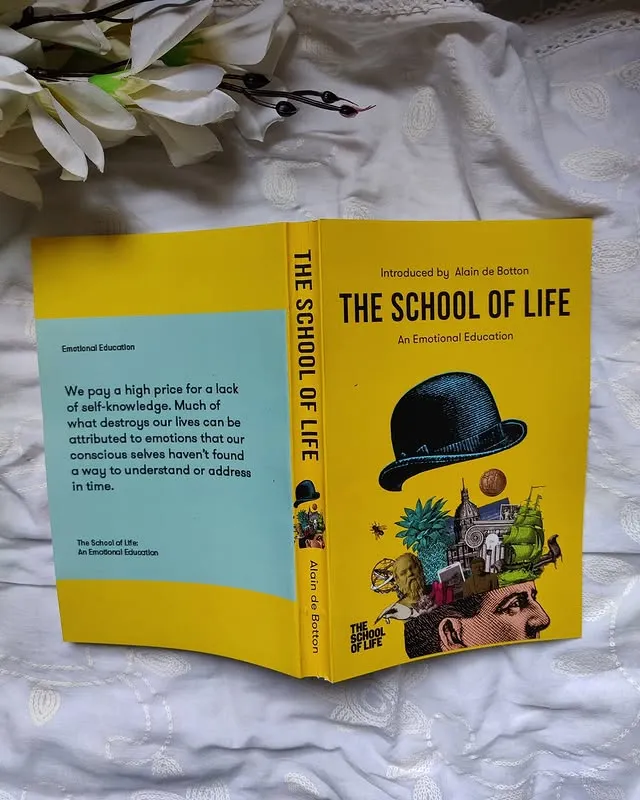
Alain de Botton’s The School of Life is a profound exploration of emotional literacy, blending philosophy with practical wisdom. This book guides readers through the art of understanding and managing emotions in a chaotic world. Drawing from diverse thinkers, it offers tools to navigate relationships, work, and self-awareness. One of the best psychology books, it’s a timeless manual for emotional growth.
Emotional Intelligence: Why It Can Matter More Than IQ by Daniel Goleman
Daniel Goleman’s seminal work, Emotional Intelligence, redefines success by emphasizing emotional awareness over traditional intelligence. It argues that skills like empathy, self-regulation, and social competence shape our lives more than IQ. Backed by research, the book provides practical strategies to enhance emotional skills. A cornerstone among books about psychology, it’s essential for personal and professional development.
Human Givens: A New Approach to Emotional Health and Clear Thinking by Joe Griffin and Ivan Tyrrell
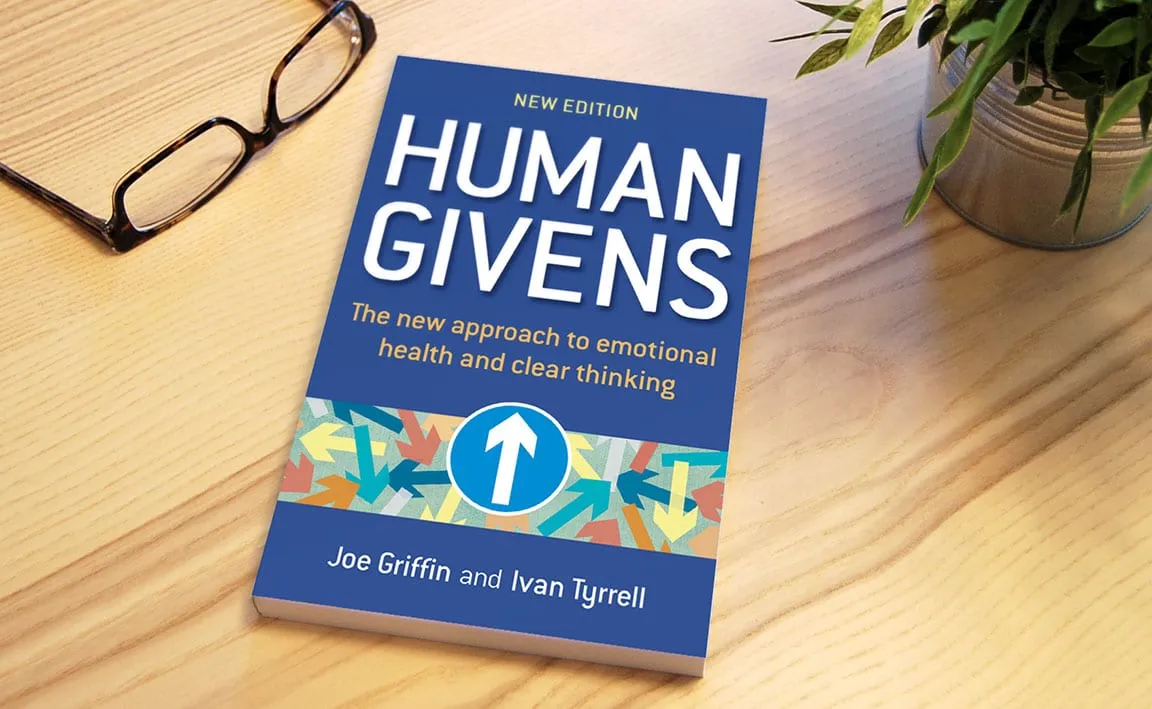
Human Givens introduces a groundbreaking framework for mental health, rooted in universal human needs. Authors Griffin and Tyrrell blend neuroscience with psychology to explain emotional well-being and clear thinking. The book offers actionable insights for therapists and individuals seeking balance. As a standout psychology textbook, it reimagines mental health with clarity and compassion.
The Oracle of Night: The History and Science of Dreams by Sidarta Ribeiro
Sidarta Ribeiro’s The Oracle of Night delves into the enigmatic world of dreams, blending science and history. This book explores how dreams shape emotions, creativity, and memory, offering a fresh perspective on the unconscious mind. Ribeiro’s engaging narrative makes complex neuroscience accessible to all. Among books on psychology, this is a captivating journey into the mind’s nocturnal theater.
Blink: The Power of Thinking Without Thinking by Malcolm Gladwell
Malcolm Gladwell’s Blink examines the power of intuitive decision-making and its emotional underpinnings. Through compelling stories, it reveals how snap judgments can outperform deliberate analysis. Gladwell’s accessible style makes this a riveting read for anyone curious about the mind. A gem among interesting psychology books to read, it challenges how we trust our instincts.
The Language of Emotions: What Your Feelings Are Trying to Tell You by Karla McLaren
Karla McLaren’s The Language of Emotions offers a transformative approach to understanding feelings as vital messengers. It provides practical tools to decode emotions like anger, fear, and joy, fostering emotional fluency. McLaren’s empathetic tone resonates with readers seeking self-awareness. This is one of the best psychology books for embracing emotional intelligence.
Molecules of Emotion: The Science Behind Mind-Body Medicine by Candace B. Pert
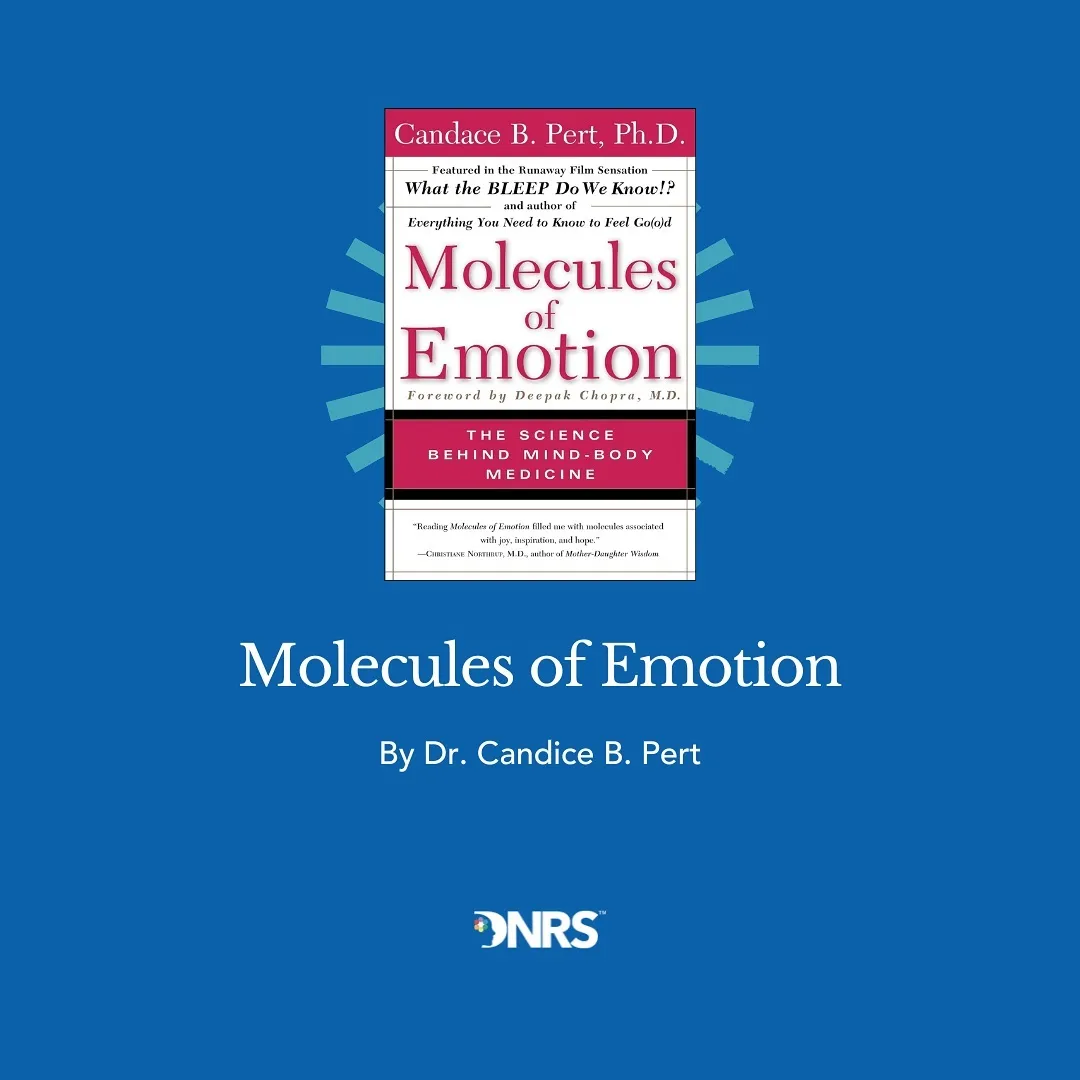
Candace B. Pert’s Molecules of Emotion bridges biology and psychology, exploring how emotions influence physical health. This pioneering work reveals the biochemical basis of feelings, connecting mind and body. Pert’s personal narrative adds depth to the scientific insights. A must-read among interesting psychology books to read, it’s a landmark in mind-body science.
Best Psychology Books About Love and Relationships
Games People Play: The Psychology of Human Relationships by Eric Berne
Eric Berne’s Games People Play unveils the hidden psychological games that shape human interactions. This classic dissects the unconscious patterns driving relationships, from romance to rivalry. Berne’s witty analysis makes complex theories accessible and engaging. A timeless entry among psychology books to read, it’s perfect for decoding social dynamics.
Explaining Humans: What Science Can Teach Us about Life, Love and Relationships by Camilla Pang
Camilla Pang’s Explaining Humans uses scientific principles to demystify love, relationships, and human behavior. Written with autistic insight, it offers a unique lens on social connections and emotional bonds. Pang’s humor and clarity make this a refreshing read. One of the best books about psychology, it’s a heartfelt guide to human connection.
Social by Matthew D. Lieberman
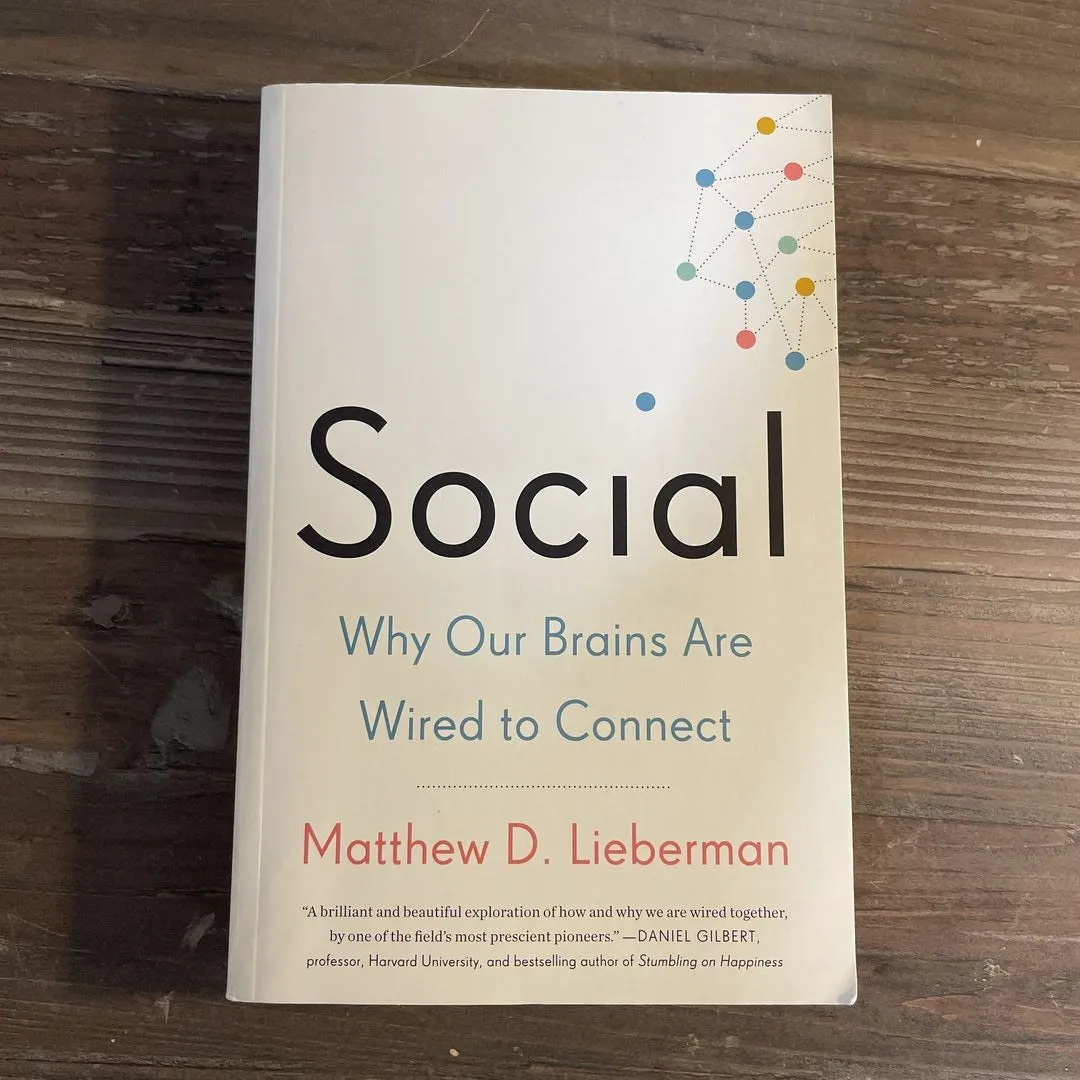
Matthew D. Lieberman’s Social explores the brain’s innate drive for connection, rooted in neuroscience. It reveals how social bonds shape our emotions, decisions, and well-being. Lieberman’s research-driven approach is both rigorous and relatable. A standout among books on psychology, this book redefines the power of relationships.
Influence: The Psychology of Persuasion (New and Expanded) by Robert B. Cialdini
Robert Cialdini’s Influence is a masterclass in understanding persuasion and its role in relationships. This expanded edition unpacks the psychological principles behind compliance and influence. Cialdini’s real-world examples make the science compelling and applicable. Among the best psychology books, it’s essential for navigating social interactions.
Best Psychology Books About Personality
Do What You Are by Paul Tieger, Barbara Barron, & Kelly Tieger
Do What You Are by Paul Tieger, Barbara Barron, and Kelly Tieger is a practical guide to aligning personality with career fulfillment. Using the Myers-Briggs Type Indicator, it helps readers discover their strengths and ideal work environments. The authors’ accessible approach makes personality typing engaging and actionable. A standout among psychology books to read, it’s perfect for self-discovery.
The Lucifer Effect: Understanding How Good People Turn Evil by Philip G. Zimbardo
Philip G. Zimbardo’s The Lucifer Effect explores the dark side of personality, examining how situational forces can lead to evil actions. Drawing from the Stanford Prison Experiment, it reveals the power of context over character. Zimbardo’s gripping analysis is both unsettling and enlightening. One of the best books about psychology, it’s a profound look at human nature.
The Psychopath Test: A Journey Through the Madness Industry by Jon Ronson
Jon Ronson’s The Psychopath Test takes readers on a fascinating journey into the world of psychopathy and personality disorders. It blends investigative journalism with humor to explore how society identifies and manages extreme personalities. Ronson’s storytelling makes complex diagnostics accessible and riveting. A gem among books on psychology, it’s a captivating exploration of the human psyche.
Survival of the Friendliest: Understanding Our Origins and Rediscovering Our Common Humanity by Brian Hare and Vanessa Woods
Survival of the Friendliest by Brian Hare and Vanessa Woods redefines personality through the lens of human evolution and cooperation. It argues that friendliness, not aggression, shaped our social nature and survival. The authors’ blend of science and storytelling is both compelling and optimistic. Among the best psychology books, it celebrates our capacity for connection.
Obedience to Authority: An Experimental View by Stanley Milgram
Stanley Milgram’s Obedience to Authority dissects the chilling psychology behind compliance with harmful orders. Based on his famous experiments, it reveals how personality bends under social pressure. Milgram’s rigorous analysis remains hauntingly relevant today. A classic psychology textbook, it’s essential for understanding human behavior.
Consciousness and the Social Brain by Michael S. A. Graziano
Michael S. A. Graziano’s Consciousness and the Social Brain explores how personality and consciousness emerge from social interactions. It proposes a groundbreaking theory of awareness rooted in neuroscience. Graziano’s clear prose makes complex ideas accessible to all. A must-read among interesting psychology books to read, it redefines the self.
Mistakes Were Made, But Not By Me by Carol Tavris
Carol Tavris’ Mistakes Were Made, But Not By Me delves into cognitive dissonance and its impact on personality. It explains why people justify harmful actions to protect their self-image. Tavris’ witty and research-driven narrative is highly engaging. One of the best psychology books, it’s a sharp look at self-deception.
The Honest Truth About Dishonesty by Dan Ariely
Dan Ariely’s The Honest Truth About Dishonesty uncovers the psychological forces behind lying and cheating. It reveals how personality traits and situational factors drive dishonest behavior. Ariely’s experiments and humor make the science relatable and insightful. A key entry among books about psychology, it’s a fascinating study of integrity.
The Social Animal by David Brooks
David Brooks’ The Social Animal weaves a narrative around the unconscious forces shaping personality and social bonds. It blends science and storytelling to explore how emotions and relationships define us. Brooks’ accessible style makes this a compelling read. Among books on psychology, it’s a profound reflection on human connection.
Rapport: The Four Ways to Read People by Emily and Laurence Alison
Rapport by Emily and Laurence Alison offers a practical guide to understanding personality through communication. Drawing from forensic psychology, it teaches four techniques to build trust and read others. The authors’ real-world examples make this highly applicable. A standout among psychology books to read, it’s ideal for mastering interpersonal skills.
Rationality: What It Is, Why It Seems Scarce, Why It Matters by Steven Pinker
Steven Pinker’s Rationality examines how personality influences our ability to think logically in a complex world. It explores the cognitive biases that undermine clear reasoning. Pinker’s clarity and wit make this both enlightening and enjoyable. One of the best psychology books, it’s a call to embrace rational thought.
Noise: A Flaw in Human Judgment by Daniel Kahneman, Olivier Sibony, and Cass R. Sunstein
Noise by Kahneman, Sibony, and Sunstein investigates the inconsistencies in human judgment that shape personality and decisions. It reveals how random variations disrupt fairness and accuracy. The authors’ rigorous analysis is accessible and thought-provoking. A vital psychology textbook, it’s essential for understanding decision-making.
Switch by Chip & Dan Heath
Switch by Chip and Dan Heath explores how to change behavior by aligning personality with motivation and environment. It offers a framework for making lasting personal and organizational changes. The Heaths’ engaging storytelling makes the science practical and inspiring. Among interesting psychology books to read, it’s a guide to transformation.
Best Psychology Books About Anxiety and Depression
The Body Keeps the Score: Mind, Brain and Body in the Transformation of Trauma by Bessel Van Der Kolk
Bessel van der Kolk’s The Body Keeps the Score is a groundbreaking exploration of how trauma fuels anxiety and depression. It blends neuroscience with practical techniques to heal the mind and body. Van der Kolk’s compassionate approach offers hope for recovery. A transformative addition to psychology books to read, it’s essential for understanding trauma’s impact.
Everyday Vitality: Turning Stress into Strength by Samantha Boardman
Samantha Boardman’s Everyday Vitality provides a fresh perspective on managing anxiety through small, meaningful actions. It offers science-backed strategies to transform stress into resilience and well-being. Boardman’s optimistic tone makes this both practical and uplifting. One of the best books about psychology, it’s a guide to thriving under pressure.
The Psychology of Pandemics: Preparing for the Next Global Outbreak of Infectious Disease by Steven Taylor
Steven Taylor’s The Psychology of Pandemics examines how anxiety and depression surge during global crises. It analyzes the psychological impact of pandemics and offers strategies for mental resilience. Taylor’s research is timely and accessible to all. A key entry among books on psychology, it’s vital for navigating collective stress.
Best Psychology Books About Happiness
The Happiness Hypothesis: Finding Modern Truth in Ancient Wisdom by Jonathan Haidt
Jonathan Haidt’s The Happiness Hypothesis blends ancient philosophy with modern psychology to uncover the roots of happiness. It explores how relationships and emotions shape our well-being. Haidt’s engaging narrative makes complex ideas relatable and profound. A gem among interesting psychology books to read, it’s a roadmap to a fulfilling life.
The Comfort Book by Matt Haig
Matt Haig’s The Comfort Book is a heartfelt collection of reflections on finding happiness amid life’s challenges. It offers gentle wisdom to soothe anxiety and foster joy. Haig’s intimate tone resonates deeply with readers seeking solace. One of the best psychology books, it’s a comforting companion for tough times.
Authentic Happiness: Using the New Positive Psychology to Realize Your Potential for Lasting Fulfilment by Martin E. P. Seligman
Martin E. P. Seligman’s Authentic Happiness introduces positive psychology as a tool for lasting happiness. It provides practical exercises to cultivate strengths and optimism. Seligman’s research-driven approach is both rigorous and accessible. A cornerstone psychology textbook, it’s essential for pursuing fulfillment.
Stumbling On Happiness by Dan Gilbert
Dan Gilbert’s Stumbling On Happiness explores why we often misjudge what brings happiness. It delves into the cognitive biases that shape our emotional predictions. Gilbert’s witty style makes this a delightful and insightful read. Among books about psychology, it’s a guide to smarter choices.
Flourish by Martin Seligman
Martin Seligman’s Flourish expands on positive psychology, offering a framework for thriving beyond mere happiness. It introduces concepts like meaning and accomplishment to enhance well-being. Seligman’s practical tools make this highly actionable. A standout among books on psychology, it’s a blueprint for a rich life.
The Paradox of Choice: Why More Is Less by Barry Schwartz
Barry Schwartz’s The Paradox of Choice examines how excessive options can fuel anxiety and undermine happiness. It offers strategies to make decisions that foster satisfaction. Schwartz’s clear analysis is both thought-provoking and practical. One of the best psychology books, it’s a guide to simplifying life.
Best Psychology Books About Negative Thinking
The Antidote by Oliver Burkeman
Oliver Burkeman’s The Antidote challenges conventional positivity, offering a refreshing approach to negative thinking. It explores how embracing uncertainty and imperfection can lead to a fuller life. Burkeman’s witty and philosophical style is highly engaging. A must-read among interesting psychology books to read, it redefines happiness.
The Upside Of Your Dark Side by Todd Kashdan
Todd Kashdan’s The Upside Of Your Dark Side argues that negative emotions like anger and anxiety can fuel growth. It provides science-backed strategies to harness these feelings for resilience. Kashdan’s optimistic lens makes this both enlightening and practical. A key psychology textbook, it’s a bold take on emotional balance.
Continuing the Journey Through the Mind
- Thinking, Fast and Slow by Daniel Kahneman
- Man’s Search for Meaning by Viktor E. Frankl
- The Power of Habit: Why We Do What We Do in Life and Business by Charles Duhigg
- Daring Greatly: How the Courage to Be Vulnerable Transforms the Way We Live, Love, Work, and Parent by Brené Brown
- Flow: The Psychology of Optimal Experience by Mihaly Csikszentmihalyi
Exploring the Depths of Human Connection
- The Social Animal: The Hidden Sources of Love, Character, and Achievement by David Brooks
- Predictably Irrational: The Hidden Forces That Shape Our Decisions by Dan Ariely
- The Seven Principles for Making Marriage Work by John M. Gottman and Nan Silver
- The Righteous Mind: Why Good People Are Divided by Politics and Religion by Jonathan Haidt
- Quiet: The Power of Introverts in a World That Can’t Stop Talking by Susan Cain
- The Brain That Changes Itself: Stories of Personal Triumph from the Frontiers of Brain Science by Norman Doidge
Final Insights into the Human Psyche
- Atomic Habits: An Easy & Proven Way to Build Good Habits & Break Bad Ones by James Clear
- The Gifts of Imperfection: Let Go of Who You Think You’re Supposed to Be and Embrace Who You Are by Brené Brown
- Sapiens: A Brief History of Humankind by Yuval Noah Harari
- The Tipping Point: How Little Things Can Make a Big Difference by Malcolm Gladwell
- Mindsight: The New Science of Personal Transformation by Daniel J. Siegel
- Grit: The Power of Passion and Perseverance by Angela Duckworth
- The Four Agreements: A Practical Guide to Personal Freedom by Don Miguel Ruiz
This collection of 53 interesting psychology books to read spans emotions, love, personality, anxiety, happiness, and negative thinking, offering timeless insights for every reader. Whether you’re drawn to the science of trauma, the pursuit of joy, or the roots of personality, these psychology books to read will enrich your understanding of yourself and others. Keep exploring the mind’s vast terrain—one page at a time.
